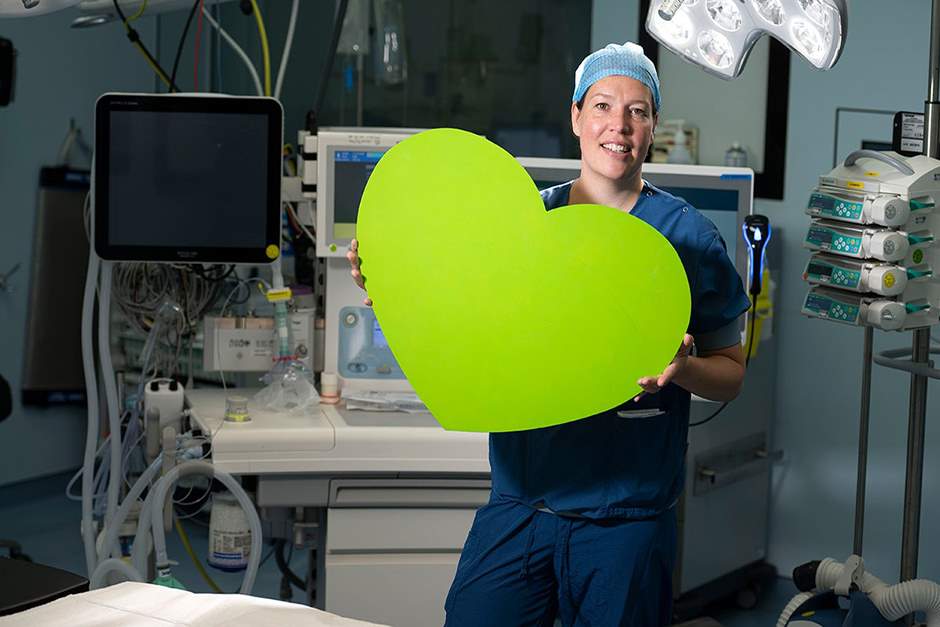Development of our colleagues
A number of significant developments in 2023 were:
Support for colleagues via UMC Utrecht Helpline
From October 2022 to April 2023, UMC Utrecht and the Staff Provident Fund jointly set up a UMC Helpline to support colleagues who risk encountering financial problems due to high inflation and energy costs. Via the helpline, colleagues were able to ask questions, share their concerns, ask for help and advice, and receive financial support.
The Helpline was a temporary initiative, but colleagues can continue to rely on the Staff Fund for support. In 2023 the Staff Fund assisted 240 colleagues with medical, psychological, social, and financial problems.
Future-proof nursing
Input from nursing expertise and experience is a substantial and essential part of our multidisciplinary care. With the ‘Future-proof Nursing program’ we as UMC Utrecht are reinforcing the nursing discipline and investing in the development of our nurses. It ensures that nurses can continue going to work with pleasure and that we continue to offer quality patient care. This program is offered for, by, and with our nurses.
Through the program, we are ensuring that the composition of our nursing teams – a functional mix, with more time and space for research, development, innovation and education – will match the future demand for care. In 2023 we started to implement the new functional mix – with nursing job descriptions that were updated in 2022 – in more divisions, and for in- and outpatients. We also started with the roll-out of various schooling and development programs, for new and current nurses as well as management positions. Important topics in these programs are nursing leadership and empowerment. We intend to give nurses a greater say at all levels in UMC Utrecht. And, via (intervision) meetings for managers of nursing departments and for nurses, colleagues can learn from each other across departments and divisions.
Science and innovation form an essential part of quality in healthcare. This is why we set up an Academic Workshop in 2023. It reinforces the relationship between daily (nursing) practice and research, innovation, and education so that new knowledge and technological innovation can find their way into practice and contribute to scientific knowledge and renewal. We are also continuing to develop our Innovation Lab. Colleagues work here on innovative solutions for small and larger practical challenges that nurses encounter from day to day.
We also organized a 2nd and 3rd edition of a UMC Utrecht-wide traineeship for nurses to give new nurses a better start; for a total of 24 trainees. To conclude, we supported nurses with irregular working hours with the Energetic@night pilot so that they can have optimal energy and get more out of their day (and night).
Healthcare professionals with a green heart inspire other colleagues
At UMC Utrecht, a large group of professionals are acting to make healthcare, research, and education more sustainable and more circular, for instance in the Green network. In 2023 the network grew from 84 to 126 members. At the end of 2023 as many as seventeen Green Teams were active at UMC Utrecht. These colleagues with a green heart have very diverse motives to act for sustainability. In the summer series of 2023 on Sustainability at UMC Utrecht, they talked about what motivates them, what has already been achieved, and what they still want to achieve. In this way we inspire people in and outside of UMC Utrecht to act for more sustainable healthcare, research, and/or education.

Green professionals have over the past six years been a driving force for the sustainability movement within UMC Utrecht. With their knowledge of the field, they know perfectly well where opportunities for sustainability can be found. In impact was for instance made by reducing OR gases and switching to reusable materials . Sustainable healthcare pioneers were also a driving force in making sustainability an integral part of the strategy of UMC Utrecht, as is now the case.